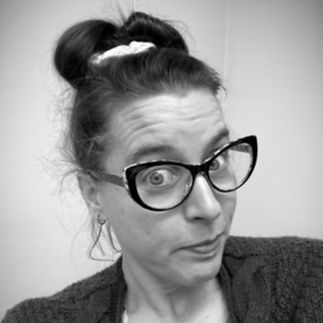
Post Academia Reflections
In academia, we study theory and discuss practice. All this is done in a sterile, academic environment- the classroom. Those of us who are incredibly fortunate have learning lab environments in which to practice. I was fortunate to have had experience in public education and was able to work in a public library as I finished my program. However, there is no learning experience like real-world situations where your ethics and convictions are challenged.
The Right to Read Statement and the Library Bill of Rights are essential documents. The images beside and below are clickable links to open the ALA resources. These documents inform our practice and are the principles of librarianship, with or without the ALA symbology.
Before the ALA code of ethics was adopted in 1939, Ranganathan's Five Laws of Library Science was proposed in 1931. These laws are widely accepted and have been adapted for the 21st century by great librarianship theologians.
-
Books are for use.
-
Every person his or her book.
-
Every book its reader.
-
Save the time of the reader.
-
A library is a growing organism.
Before any library-specific theories existed, the U.S. Constitution, which includes the First and 14th Amendments, set forth the rules for our government. This foundational document protects the expression of thought, the right to access that expression of thought, and equal protection under the law.
A library serves their local communities; this is vitally important. This is why elementary school libraries contain different materials from academic law libraries. As a professional librarian, everyone must remember that the public library serves the community. When called upon to make decisions for the public library, especially a municipal library, the principles outlined in the U.S. Constitution have precedence. Libraries are a public service that fundamentally believes in local control. The way we interpret and execute library ethics must be informed by the community we serve.
Personal Learning Goals
While my original goal was to become the Library Media Specialist (LMS) at the school I was working in when I started the program, I also wanted to make sure my time in the Master of Library and Information Studies (MLIS) program included gaining skills that would enable me to serve as a public librarian and related to my previous work with mental health. My personal goal is to discover ways to be the best librarian and I can be and to continue to grow in the field through continued learning.
Goals
-
Discover how principles of teaching apply to public libraries.
-
Relate social work and mental health to working in public libraries
-
Gain a greater understanding of the history and practice of librarianship
Objectives
-
Be able to translate theories of teaching to library programming.
-
Be able to apply the theories of sociology and mental health to the library setting.
-
Be able to critically examine the history of the library.
-
Be able to improve my own practice in the library through an understanding of the principles of librarianship.
The public library specifically, but also librarianship in general, is an institution intrinsically tied to theories of sociology and social work. The public library can accurately be described as a service institution providing services and resources to all members of our society equally, regardless of socioeconomic status. Additionally, social work concepts such as self-determination, the idea that each person should decide for themselves, is clearly illustrated by concepts written into the Library Bill of Rights and the Freedom to Read Statement. The library is a community mental health organization that provides enrichment for the community it serves.


